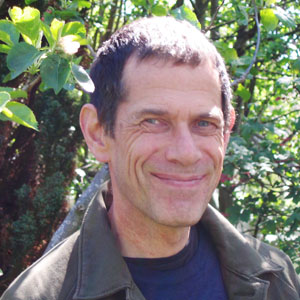Credentials
I have been an instructor member of the Tai Chi Union for Great Britain, one of the larger umbrella organisations in the country, since 2011. I am fully insured for the teaching I do (click here to download my insurance certificate) and have a current DBS check.
The masters of Elephant Mountain
I began studying and practising qigong and taiji in 2002 with Ian McPherson, a very experienced teacher who lives in Sedbergh, Cumbria, and I taught within his classes from 2008. I studied Wild Goose qigong with June Parker in Sedbergh for ten years, worked on Sun style taiji with Hazel Hunt of Lakes Tai Chi, studied taiji partner work with Dee Swift and John Bolwell who run Lakes Tai Chi and have taken several shorter courses at various times with a number of the country's top teachers. I trained in Peter Ralston's Cheng Hsin method between 2013 and 2019 alongside June Parker - she is much more skilled but I served as training partner and co-explorer of this demanding and rewarding art. I trained in floor work with John from 2016 to 2019 and learned staff with him from 2017 to 2019. I have been teaching independently since 2010, always learning how to teach effectively, and I concentrate on transmitting the principles of the art as far as I understand them.
The chain of transmission
Cheng Man-Ch'ing (Zhèng Mànqīng, 鄭曼青) developed his form after years of studying the traditional Yang family style with Yang Chengfu (Yáng Chéngfǔ, 楊澄甫). After the Second World War, Cheng moved to Taiwan and taught, among others, Dr. Chi Chiang-Tao (Qi Jiangtao) and Liu Si-Heng (Liu Hsi-heng). Chi and Liu taught Toyo and Petra Kobayashi in Taipei and Vancouver. Back in Germany, the Kobayashis set up a taiji school and one of their students was Kajedo. Ian learnt the form from Kajedo when they were both living at Findhorn, and Ian taught me.
I have also studied the Cheng Man-ch'ing form with others, notably Jean and Dave Haines in Wigton, Cumbria; they are long-term students of Patrick Kelly, who was a student of Master Huang Sheng Shyan (Huáng Xìngxián 黃性賢), another of Cheng's students in Taiwan.

I know I'm never going to be an amazing qigong practitioner or learn all the secrets of taiji - even if I'd had the talent and focus, I started too late I think. But I do okay. My hope is to offer a safe, relaxed space where people new to the arts can explore and learn and those with experience can practise and maybe get a different perspective on what they do.
I also have long experience in music and sound practice, with an emphasis on improvisation, conscious listening and natural sound, and this has a big influence on the way I practise and teach qigong and taiji.
Videos
None of these are videos of me (phew!). It's all taiji quan for now. I've found the videos on YouTube at various times and I've collected the links here to help show people the sort of stuff this is.
Cheng Man-Ch'ing (Zhèng Mànqīng, 鄭曼青)
Aged around 60, whole form from another angle, plus some bits
Cheng Man-Ch'ing form by other people
Massimiliano Biondi (a student of Wang Chin Shih)
William Bengochea, a student of Maggie Newman, who was a student of Cheng Man-Ch'ing
Why all the different spellings?
Spoken Chinese isn't easily written in Latin script, and there have been a number of attempts at systems of romanisation over the years. I use the most recent, pinyin, as it is the standard in mainland China, Taiwan, the UN and with the ISO. Older romanisations, e.g. 'chi kung' for 'qigong', are still common in the West so I have given those too so people know what I mean and to help with search engines. Until you learn pinyin's conventions, the older systems give a better idea of what the Chinese words sound like, too. When you see accents over the Chinese words, these give the 'tones' which are a vital part of the words' pronunciation.
'Taijiquan' and 'taiji' are the same thing; 'taijiquan' (pronounced 'tai chi chuan') is its full name, but most people call it 'taiji' day to day.
I have put one or two Chinese phrases and names in Chinese characters too - I hope I've got them right - because YouTube will let you search on Chinese characters - if your browser shows them, just highlight them on this page, copy them, and paste them into the YouTube search box. It probably works on other video sites as well. To add to the madness, some Chinese characters have simple and traditional forms. I've mixed them up before now but I'm trying to stick to one sort these days!